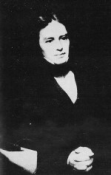Electronics Pioneers & History
- See Full List of AI Topics -

Michael Faraday, one of the most revered experimental scientists in history,
was born on September 22, 1791, in Newington Butts, a small village near London.
His humble beginnings were in stark contrast to his towering achievements. Faraday's
father, James, was a blacksmith of modest means, and his mother, Margaret Hastwell,
managed the household despite financial difficulties. The family belonged to a small
Christian sect known as the Sandemanians, whose values of humility, simplicity,
and a focus on practical service profoundly influenced Faraday throughout his life.
Faraday's early education was rudimentary, consisting mostly of reading, writing,
and arithmetic. At the age of 14, he was apprenticed to a London bookbinder named
George Riebau. This apprenticeship proved transformative, as it allowed young Faraday
access to a wealth of books. He avidly read works on science, including The Encyclopedia
Britannica and Jane Marcet's Conversations on Chemistry. These texts sparked his
interest in natural philosophy and laid the foundation for his scientific career.
In 1812, Faraday attended a series of public lectures by Sir Humphry Davy, a
renowned chemist, at the Royal Institution. Faraday meticulously documented these
lectures and later presented his notes to Davy, along with a letter seeking employment.
Impressed by Faraday's diligence and enthusiasm, Davy offered him a position as
a laboratory assistant. This marked the beginning of Faraday's ascent in the scientific
world.
Faraday's professional life was centered at the Royal Institution, where he worked
for much of his career. Initially assisting Davy, he eventually became a lecturer,
director of the laboratory, and, later, the Fullerian Professor of Chemistry. His
roles at the institution were varied, encompassing research, education, and administrative
responsibilities. He approached these with unwavering dedication, despite his lack
of formal education or mathematical training.
Faraday's contributions to science were monumental. In chemistry, he discovered
benzene, established the principles of electrolysis, and introduced terms such as
"electrode," "anode," "cathode," and "ion." However, his most influential work lay
in the realm of electromagnetism. In 1831, Faraday discovered electromagnetic induction,
demonstrating that a changing magnetic field could induce an electric current in
a conductor. This principle underpins the operation of electric generators and transformers,
technologies that power the modern world.
Faraday's investigations into electricity and magnetism were characterized by
ingenious experimental methods and an extraordinary ability to visualize and conceptualize
complex phenomena. He introduced the concept of the electromagnetic field, a theoretical
construct that would later be formalized by James Clerk Maxwell in the 19th century.
Faraday also demonstrated the rotation of polarized light in a magnetic field, a
phenomenon now known as the Faraday effect, and conducted groundbreaking experiments
on the behavior of gases at low temperatures.
Faraday's personal life was as modest as his upbringing. In 1821, he married
Sarah Barnard, a fellow member of the Sandemanian church. The couple shared a harmonious
and supportive relationship but had no children. Faraday's faith remained central
to his life, providing him with a moral compass and a sense of purpose. He eschewed
wealth and declined honors, including a knighthood, believing that scientific work
should be pursued for the greater good, not personal gain.
Despite his scientific brilliance, Faraday's health began to decline in the 1850s.
He suffered from memory lapses and fatigue, likely exacerbated by his long years
of experimental work and possible exposure to toxic chemicals. In 1858, he retired
to Hampton Court, a grace-and-favor residence granted by Queen Victoria in recognition
of his contributions. He lived there with Sarah in quiet contentment until his death
on August 25, 1867.
Faraday's legacy is vast and enduring. His work laid the foundation for the electrical
age, influencing technologies from electric power generation to telecommunications.
The farad, a unit of electrical capacitance, is named in his honor, as is the Faraday
constant, which relates to the charge of ions in electrolysis. His ability to elucidate
complex scientific principles through meticulous experimentation and his refusal
to compromise his integrity have made him a paragon of the scientific method.
Faraday's life is a testament to the power of curiosity, perseverance, and humility.
Despite his lack of formal education, he achieved unparalleled success through self-learning
and tireless effort. His discoveries transformed the scientific understanding of
nature and continue to inspire scientists and engineers around the globe. Faraday
remains a shining example of how dedication and intellectual curiosity can overcome
even the most challenging circumstances.
 This content was generated by primarily
with the assistance of ChatGPT (OpenAI), and/or
Gemini (Google), and/or
Arya (GabAI), and/or Grok
(x.AI), and/or DeepSeek artificial intelligence
(AI) engines. Review was performed to help detect and correct any inaccuracies; however,
you are encouraged to verify the information yourself if it will be used for critical
applications. In all cases, multiple solicitations to the AI engine(s) was(were)
used to assimilate final content. Images and external hyperlinks have also been
added occasionally - especially on extensive treatises. Courts have ruled that AI-generated
content is not subject to copyright restrictions, but since I modify them, everything
here is protected by RF Cafe copyright. Many of the images are likewise generated
and modified. Your use of this data implies an agreement to hold totally harmless
Kirt Blattenberger, RF Cafe, and any and all of its assigns. Thank you. Here is
Gab AI in an iFrame. This content was generated by primarily
with the assistance of ChatGPT (OpenAI), and/or
Gemini (Google), and/or
Arya (GabAI), and/or Grok
(x.AI), and/or DeepSeek artificial intelligence
(AI) engines. Review was performed to help detect and correct any inaccuracies; however,
you are encouraged to verify the information yourself if it will be used for critical
applications. In all cases, multiple solicitations to the AI engine(s) was(were)
used to assimilate final content. Images and external hyperlinks have also been
added occasionally - especially on extensive treatises. Courts have ruled that AI-generated
content is not subject to copyright restrictions, but since I modify them, everything
here is protected by RF Cafe copyright. Many of the images are likewise generated
and modified. Your use of this data implies an agreement to hold totally harmless
Kirt Blattenberger, RF Cafe, and any and all of its assigns. Thank you. Here is
Gab AI in an iFrame.
AI Technical Trustability Update
While working on an update to my
RF Cafe Espresso Engineering Workbook project to add a couple calculators about
FM sidebands (available soon). The good news is that AI provided excellent VBA code
to generate a set of Bessel function
plots. The bad news is when I asked for a
table
showing at which modulation indices sidebands 0 (carrier) through 5 vanish,
none of the agents got it right. Some were really bad. The AI agents typically explain
their reason and method correctly, then go on to produces bad results. Even after
pointing out errors, subsequent results are still wrong. I do a lot of AI work
and see this often, even with subscribing to professional versions. I ultimately
generated the table myself. There is going to be a lot of inaccurate information
out there based on unverified AI queries, so beware.
Electronics & High Tech
Companies | Electronics &
Tech Publications | Electronics &
Tech Pioneers | Electronics &
Tech Principles |
Tech Standards Groups &
Industry Associations | Societal
Influences on Technology
|









